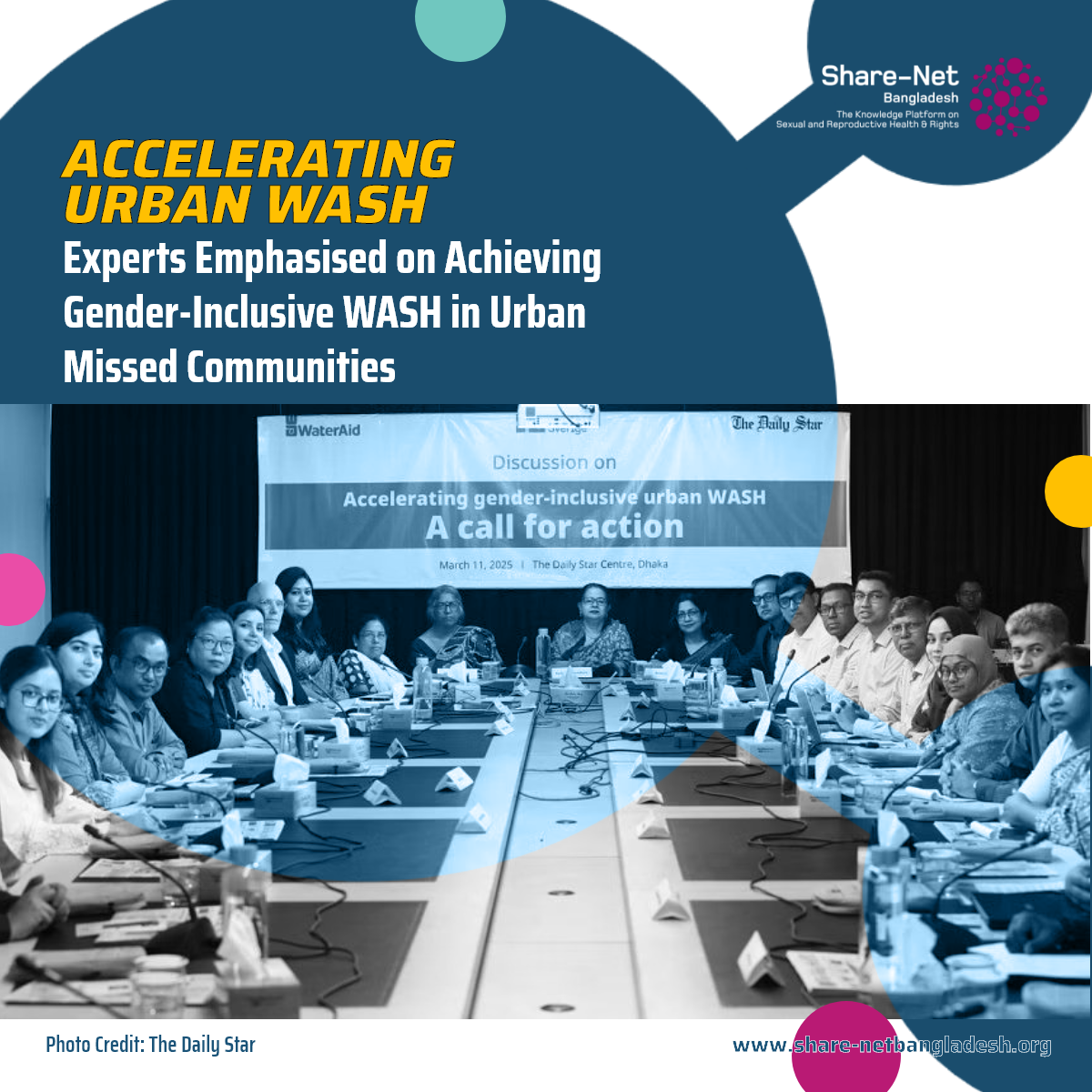Accelerating Urban WASH: Experts Emphasised on Achieving Gender-Inclusive WASH in Urban Missed Communities
WaterAid Bangladesh, in partnership with The Daily Star, hosted a roundtable titled “Accelerating Gender-Inclusive Urban WASH: A Call for Action” on March 11, 2025. The event brought together experts, policymakers, development practitioners, and community voices to tackle the challenges of gender equity in water, sanitation, and hygiene (WASH) in Dhaka’s urban spaces, particularly in low-income communities (LICs).
“The situation is dire—especially for women who spend most of their day outdoors with little or no access to safe sanitation,” said Hasin Jahan, Country Director of WaterAid Bangladesh, in her keynote. She highlighted the plight of flower sellers, beggars, and female traffic police who often go hours without access to clean toilets or water.
Dhaka, a city of over 20 million, has only 641 public toilets, with just 116 under city corporation management. This shortage disproportionately affects over four million LIC dwellers, half of whom are women. Although efforts are underway—such as a pilot WASH plan in Ward 20, Zone 3 of Dhaka North City Corporation—implementation gaps remain. “We found 18 public toilets in that area, but only six work. Thirteen would suffice if placed strategically. This is a classic case of poor planning,” Hasin noted.
Farhana Rashid, CEO of Bhumijo, shared a compelling example of shifting mindsets. “When we first proposed renovating the women’s toilet in Gawsia Market, the committee said women didn’t use toilets. But within months of the operation, they asked us to upgrade the men’s facilities too,” she said, underscoring how data-driven, customer-focused approach can break long-standing biases.
Panelists also spotlighted the intersection of WASH with broader social justice issues. Falguni Tripura from the Bangladesh Adivasi Forum stressed, “Indigenous women and transgender communities face violence simply for trying to access a toilet. This is more than a policy gap—it’s a failure of dignity and rights.”
Shamim Ara Shammi of BRAC noted recurring damage to water lines in LICs, leading to waterborne illnesses. “These communities provide vital services to the city, yet they are invisible in planning.”
The conversation also explored practical solutions. Speakers recommended adopting minimum WASH standards, implementing tariff-based but affordable models, and leveraging existing spaces like mosques and fuel stations for gender-inclusive sanitation. There was also a strong push for corporate engagement. “We want to partner on innovative, inclusive WASH infrastructure,” said Sumaiya T. Ahmed, Head of Sustainability at PRAN-RFL Group.
The roundtable ended with a unified call for political will, stronger institutional coordination, and community-led solutions. As Peter Maes, UNICEF’s Chief of WASH, reminded attendees, “Improving WASH isn’t just about health—it’s about education, dignity, and a child’s future.”
The message was clear: achieving gender-inclusive WASH in urban Bangladesh is not just a development goal—it’s a moral imperative.
Source: The Daily Star

